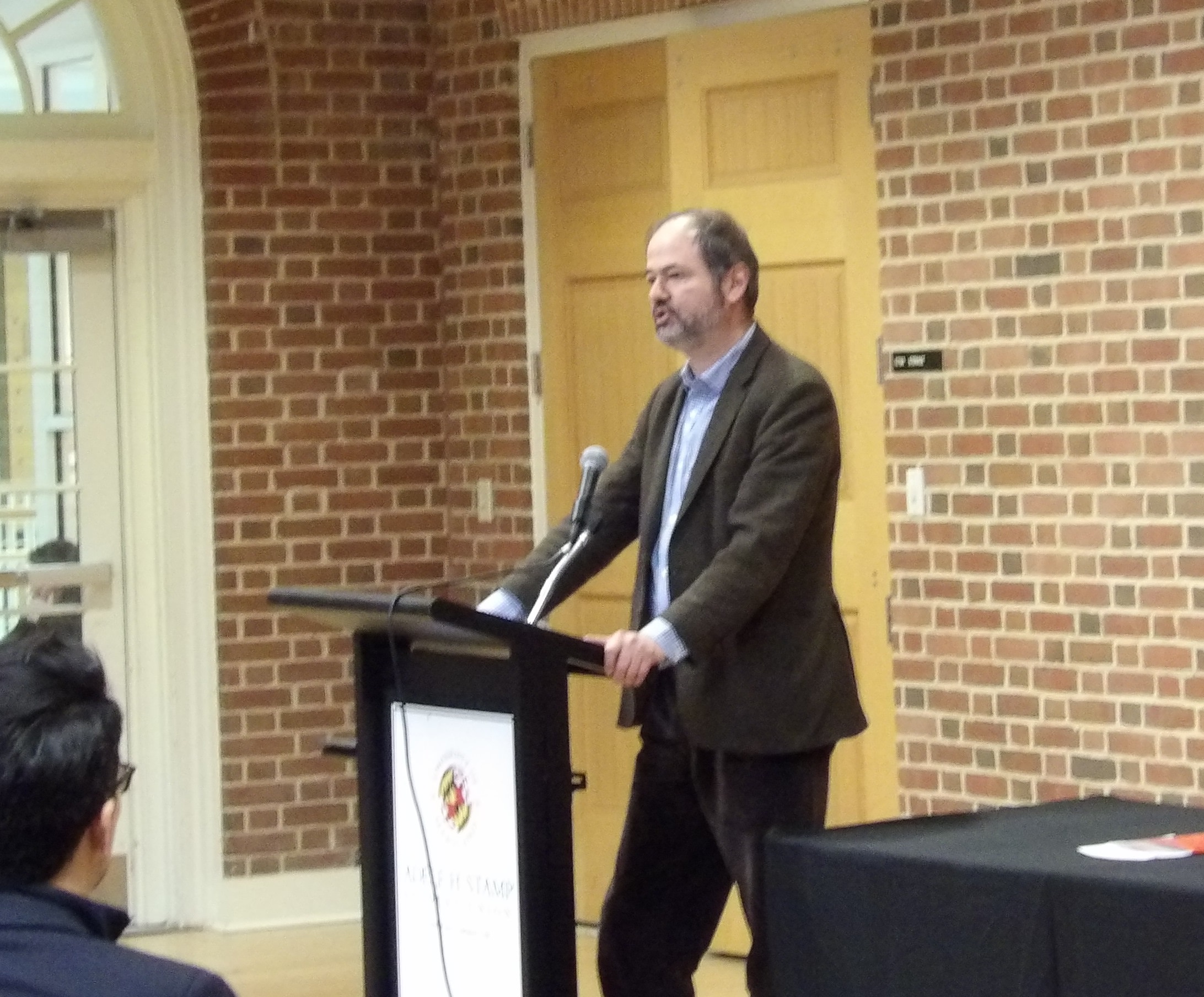Inauguration of the José Emilio Pacheco Series
December 17, 2016

Inauguration of the José Emilio Pacheco Distinguished Lecture Series
Inauguration of the José Emilio Pacheco Distinguished Lecture Series
The official inauguration of the José Emilio Pacheco Distinguished Lecture Series / Cátedra José Emilio Pacheco took place on Friday, December 2, 2016. This Series is a joint effort by the Department of Spanish and Portuguese of the School of Languages, Literatures, and Cultures at the University of Maryland, and the Mexican Cultural Institute of Washington, D.C., to serve as a forum for intellectuals whose work focuses on the literary and cultural traditions of Mexico and Latin America. The renowned novelist, short-story writer, essayist, and chronicler Juan Villoro was chosen to be the first Distinguished Lecturer.
José Emilio Pacheco (1939 – 2014) is one of the most important Mexican writers of the twentieth century, working as a professor in universities across Mexico, Canada, England, and the United States. A professor in the Department of Spanish and Portuguese from 1984 to 2006, Pacheco was granted the University’s most prestigious title, University of Maryland Distinguished University Professor. Among his works are El viento distante (1963), Morirás lejos (1967), El principio del placer (1972), Las batallas en el desierto (1981), No me preguntes cómo pasa el tiempo, and Ciudad de la memoria (1989). In 2009, his poetry was published in a collection, titled Tarde o temprano. Pemas 1958-2000. His literary and journalistic production earned him prominent awards, such as the Premio Xavier Villaurrutia, the Premio Nacional de Periodismo, the Premio José Fuentes Mares the Premio Nacional de Ciencias y Artes, the Premio Reina Sofía de de Poesía Iberoamericana, and the Premio Miguel de Cervantes, the most prestigious prize in Hispanic literature.
Friday’s event began with opening remarks by Dr. Eyda Merediz, Head of the Department of Spanish and Portuguese; Dr. Bonnie Thornton Dill, Dean of the College of Arts and Humanities; Dr. Fatemeh Keshavarz, Director of the School of Languages, Literatures, and Cultures; and Alberto Fierro Garza, Director of the Mexican Cultural Institute. Dr. Merediz, welcomed attendees, and Dr. Thornton Dill inaugurated the session by recognizing the leadership of the Department of Spanish and Portuguese. She also emphasized José Emilio Pacheco’s work as a manifestation of the importance of culture and the humanities in today’s world. Dr. Keshavarz highlighted that José Emilio Pacheco was one of the first professors to be recognized as University Distinguished Professor.
The opening remarks were followed by a word on José Emilio Pacheco by Dr. Saúl Sosnowski from the Department of Spanish and Portuguese. Dr. Sosnowski remembered the process of hiring José Emilio Pacheco in 1984 for the position of professor, for which he was a targeted hire. Dr. Sosnowski talked about the many renowned intellectuals from Hispanic countries that have worked in the Department of Spanish and Portuguese, such as scholar Ángel Rama. Dr. Sosnowski recalled the important role that our Department played in Pacheco’s writing, as well as his role as a devoted professor and mentor. His work and dedication represent the impressive and vital legacy of the Department of Spanish and Portuguese.
Dr. Ryan Long introduced Juan Villoro and offered an overview of the Mexican writer’s work. In addition, Dr. Long underlined Villoro’s generous and down-to earth character. Juan Villoro is the autor of novels: El testigo, Llamadas Ámsterdam, Arrecife; short stories collections: La noche navegable, La casa pierde, Los culpables, Apocalipsis (todo incluido); chronicles: Los once de la tribu, Safari accidental, Dios es redondo; and children’s book: El profesor Zíper y la fabulosa guitarra eléctrica, El libro salvaje, El taxi de los peluches.He also publishes weekly columns in the newspapers El país and Reforma.

